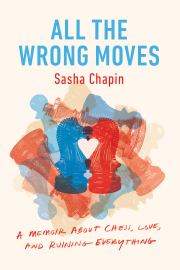Helen Beatrix Potter was born on this day in 1866. We all remember her for her remarkable children’s books featuring animals such as Peter Rabbit, Jeremy Fisher, Jemima Puddle-Duck, Mrs. Tiggy-Winkle but she was also a natural scientist, mycologist, prize-winning breeder of Herdwick sheep, farmer and conservationist. Her family had inherited the wealth that came from the Lancashire cotton mills, the infamous industry that crippled India’s textile economy. The Potters preferred to ignore their past and live a life of upper-middle-class comfort.
Beatrix Potter and her brother Bertram led a life where art and imagination held sway. They were deeply connected with animals and owned several rabbits, squirrels, bats, birds and insects. Potter’s early sketches paved the way for her future as illustrator with no rival. From a young age, she journaled and was privately tutored in astronomy, botany, entomology, etc.
She had a scientific bent of mind and her detailed drawings of fungi reveal her keen interest in pursuing her scientific passion but it was not to be.
Her keen interest in fairytales and fantasy and her wide reading enabled her to start her career as author-illustrator. She was fiercely independent and was enterprising enough to design Christmas cards and sell them.
She also wrote detailed letters filled with the germ of her future stories. One such letter to a sick child featured the famous bunnies Flopsy, Mopsy, Cotton-tail and Peter – this letter was self-published as The Tale of Peter Rabbit. After multiple rejections by publishers, her book was later acquired by Frederick Warne & Company.
She even patented the Peter Rabbit doll and introduced the idea of character-based merchandise such as wallpaper, games and toys. She authored 30 books and her books continue to sell throughout the world in different languages and were adapted in songs, films and even ballet.
Later in her life, her interests were aligned with the conservation of the Lake District where she lived with her husband.


![Kargil: Untold Stories from the War by [Rachna Bisht Rawat]](https://i0.wp.com/m.media-amazon.com/images/I/512vByKApgL.jpg?resize=180%2C275&ssl=1) Kargil: Untold Stories from the War by Rachna Bisht Rawat
Kargil: Untold Stories from the War by Rachna Bisht Rawat Kargil: From Surprise To Victory by General V. P. Malik
Kargil: From Surprise To Victory by General V. P. Malik A Ridge Too Far: War in the Kargil Heights, 1999 by Amarinder Singh
A Ridge Too Far: War in the Kargil Heights, 1999 by Amarinder Singh  Kargil: Turning the Tide by Lt. General Mohinder Patel
Kargil: Turning the Tide by Lt. General Mohinder Patel The Kargil Girl: An Autobiography by Gunjan Saxena
The Kargil Girl: An Autobiography by Gunjan Saxena

![A Beautiful Mind by [Sylvia Nasar]](https://i0.wp.com/m.media-amazon.com/images/I/41pmjXYdOHL.jpg?w=840&ssl=1) Beautiful Mind by Sylvia Nasar
Beautiful Mind by Sylvia Nasar The Man Who Loved Only Numbers by Paul Hoffman
The Man Who Loved Only Numbers by Paul Hoffman Logicomix: An Epic Search for Truth by Apostolos Doxiadia, Christos H. Papadimitriou
Logicomix: An Epic Search for Truth by Apostolos Doxiadia, Christos H. Papadimitriou A Madman Dreams of Turing Machines
A Madman Dreams of Turing Machines  The Guernsey Literary and Potato Peel Pie Society by Mary Ann Shaffer and Annie Barrows
The Guernsey Literary and Potato Peel Pie Society by Mary Ann Shaffer and Annie Barrows


 Birth of the Chess Queen: A History
Birth of the Chess Queen: A History  Queen of Katwe: A Story of Life, Chess, and One Extraordinary Girl’s Dream of Becoming a Grandmaster by Tim Crothers
Queen of Katwe: A Story of Life, Chess, and One Extraordinary Girl’s Dream of Becoming a Grandmaster by Tim Crothers All the Wrong Moves: A Memoir About Chess, Love, and Ruining Everything
All the Wrong Moves: A Memoir About Chess, Love, and Ruining Everything  The Grandmaster
The Grandmaster Bobby Fischer Goes to War: How the Soviets Lost the Most Extraordinary Chess Match of All Time
Bobby Fischer Goes to War: How the Soviets Lost the Most Extraordinary Chess Match of All Time ![The Sin Eater (The Nell West and Michael Flint Series Book 2) by [Sarah Rayne]](https://i2.wp.com/m.media-amazon.com/images/I/419evkjg4XL.jpg?resize=180%2C283&ssl=1) The Sin Eater by Sarah Rayne
The Sin Eater by Sarah Rayne


 Mastering the Pakodas: The Snack for all Seasons by Sangeeta Khanna
Mastering the Pakodas: The Snack for all Seasons by Sangeeta Khanna An Indian Sense of Salad by Tara Deshpande Tennebaum
An Indian Sense of Salad by Tara Deshpande Tennebaum![The Dal Cookbook by [Krishna Dutta]](https://i2.wp.com/m.media-amazon.com/images/I/51B27ldkdcL.jpg?resize=147%2C208&ssl=1) The Dal Cookbook by Krishna Dutta
The Dal Cookbook by Krishna Dutta![660 Curries by [Raghavan Iyer]](https://i1.wp.com/m.media-amazon.com/images/I/61FuRA8AAAL.jpg?resize=184%2C210&ssl=1)
![Madhur Jaffrey's Curry Nation by [Madhur Jaffrey]](https://i1.wp.com/m.media-amazon.com/images/I/61vNo5-bXGL.jpg?resize=158%2C202&ssl=1) Quick & Easy Indian Cooking by Madhur Jaffrey
Quick & Easy Indian Cooking by Madhur Jaffrey  Indian Grandmas’ Secret Recipes
Indian Grandmas’ Secret Recipes Amader Barir Khawa Dawa: Bengali Recipes From My Mother’s Kitchen by Ratna Mukherjee
Amader Barir Khawa Dawa: Bengali Recipes From My Mother’s Kitchen by Ratna Mukherjee Anglo-Indian Delicacies by Bridget White-Kumar
Anglo-Indian Delicacies by Bridget White-Kumar






